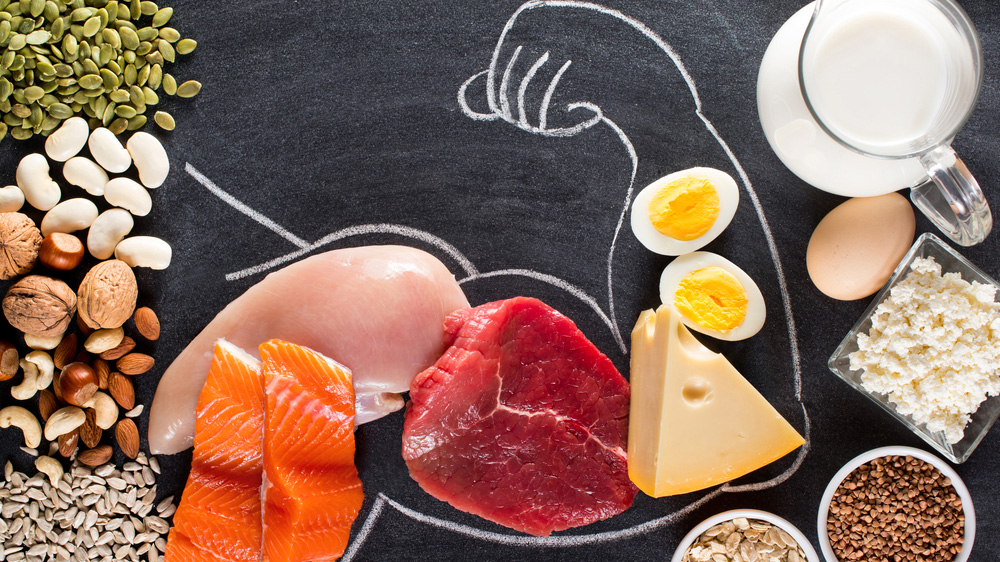Energy—our vital fuel that keeps us moving, thinking, loving, and shining. But where does this energy come from? It starts with what’s on our plate! Nutrition for energy is more than a matter of taste—it’s the cornerstone of our vitality. Not all foods are created equal. Some act as rockets propelling us to new heights, while others weigh us down. So, how do we ensure our bodies get the fuel they need to power through each day with a radiant smile? Let’s dive into the essentials.
Why Is Energy So Important?
Picture a sleek car without fuel. It might look great, but it’s not going anywhere. Our bodies are no different. Every movement, heartbeat, and thought requires energy. This constant biochemical marathon demands high-quality fuel. Without it, we can’t think clearly, move efficiently, or thrive in our relationships and work. That’s why ensuring consistent, high-quality nutrition for energy is absolutely critical.
The Foundations of Energy: Macronutrients
Understanding how nutrition fuels our energy starts with the three essential macronutrients: carbohydrates, proteins, and fats. Each plays a unique role in energy production.
- Carbohydrates are our immediate energy source. Foods like bread, pasta, and fruits break down into glucose, the body’s preferred fuel—especially for the brain. Think of glucose as a rocket booster for quick energy.
- Proteins focus on building and repairing tissues but can serve as backup energy when needed. They’re particularly useful for recovery after intense physical activity.
- Fats are our long-term energy reserves. They provide more energy per gram than carbs and help sustain us over time. Stick to healthy fats like those in avocados, nuts, and olive oil for optimal performance.
The Role of Micronutrients in Energy
While macronutrients are the pillars of energy, micronutrients—vitamins and minerals—are the sparks that ignite the process.
- Magnesium is a superstar for energy metabolism, playing a key role in over 300 enzymatic reactions, including ATP (adenosine triphosphate) production. Without enough magnesium, fatigue and weakness can set in.
- B Vitamins are crucial for converting carbs, fats, and proteins into usable energy. Each B vitamin has a specialty: B1 helps metabolize carbs, while B12 supports red blood cell production to deliver oxygen for energy.
Nutrition for Energy-Sapping Dietary Mistakes
Not all foods help fuel your day. Some common dietary pitfalls can drain your energy reserves instead of replenishing them.
- Refined sugar is a sneaky culprit. While it provides a temporary energy boost, it’s often followed by a crash that leaves you tired and irritable. That morning chocolate croissant? It might cost you your focus by noon.
- Nutrient-poor diets packed with processed foods or overly restrictive eating plans lack the vitamins and minerals your body needs to produce sustainable energy. Over time, this can lead to both physical and mental fatigue.
Eating for Performance: Nutrition and Physical Activity
For athletes or anyone leading an active lifestyle, nutrition for energy becomes even more critical. Imagine trying to run a marathon on an empty tank—impossible, right?
- Before exercise, complex carbs like brown rice or whole-grain pasta offer slow-releasing energy for endurance.
- During exercise, quick energy sources, such as energy bars or gels, can replenish glycogen stores.
- After exercise, proteins repair muscle fibers, while carbs restore glycogen reserves to prepare for your next workout.
The Secret to Lasting Energy: Regularity and Variety
The key to maintaining consistent energy throughout the day is regular and diverse eating habits.
- Eating at set times helps stabilize blood sugar, preventing energy spikes and crashes.
- Incorporating a variety of carb sources ensures a mix of nutrients and fiber from whole grains, vegetables, and fruits.
- Diversifying proteins (e.g., lean meats, fish, legumes, tofu) provides all essential amino acids for muscle and tissue health.
- Mixing fats from avocados, nuts, and seeds supports heart and brain health, enhancing overall performance.
Superfoods to Boost Your Energy
Certain foods pack a powerful punch when it comes to sustaining energy. These natural powerhouses are rich in nutrients that enhance your body’s performance.
- Chia seeds: Loaded with fiber, protein, and omega-3s, they provide steady energy by slowing glucose absorption.
- Goji berries: Bursting with antioxidants, they combat fatigue by supporting immune health and blood flow.
- Raw cacao: A delightful source of magnesium and iron, cacao supports energy production while satisfying your taste buds. (Skip the sugary versions and go for pure cacao.)
Hydration: The Unsung Hero of Energy
Let’s not forget water! Our bodies are 60% water, and every cell depends on it to function properly. Even mild dehydration can sap your energy and focus. Aim to drink regularly throughout the day, and jazz up your hydration by adding slices of lemon, cucumber, or mint for a refreshing twist.
Conclusion: Eat Smart, Move More, and Thrive!
What’s the takeaway? Nutrition for energy is the cornerstone of vitality, and every meal matters. By choosing a variety of wholesome, nutrient-packed foods, staying hydrated, and timing your meals well, you can banish afternoon slumps and feel energized all day long. Ready to fuel your life with smarter food choices? Let’s dig in… with enthusiasm!
References:
- Harvard Health Publishing – “The Truth About Carbohydrates and Your Energy“
- Mayo Clinic – “Nutrition and Healthy Eating“
- WebMD – “The Importance of Macronutrients“
- American Heart Association – “Healthy Eating and Energy Levels“
- National Institutes of Health (NIH) – “Micronutrients and Their Impact on Energy Production”


